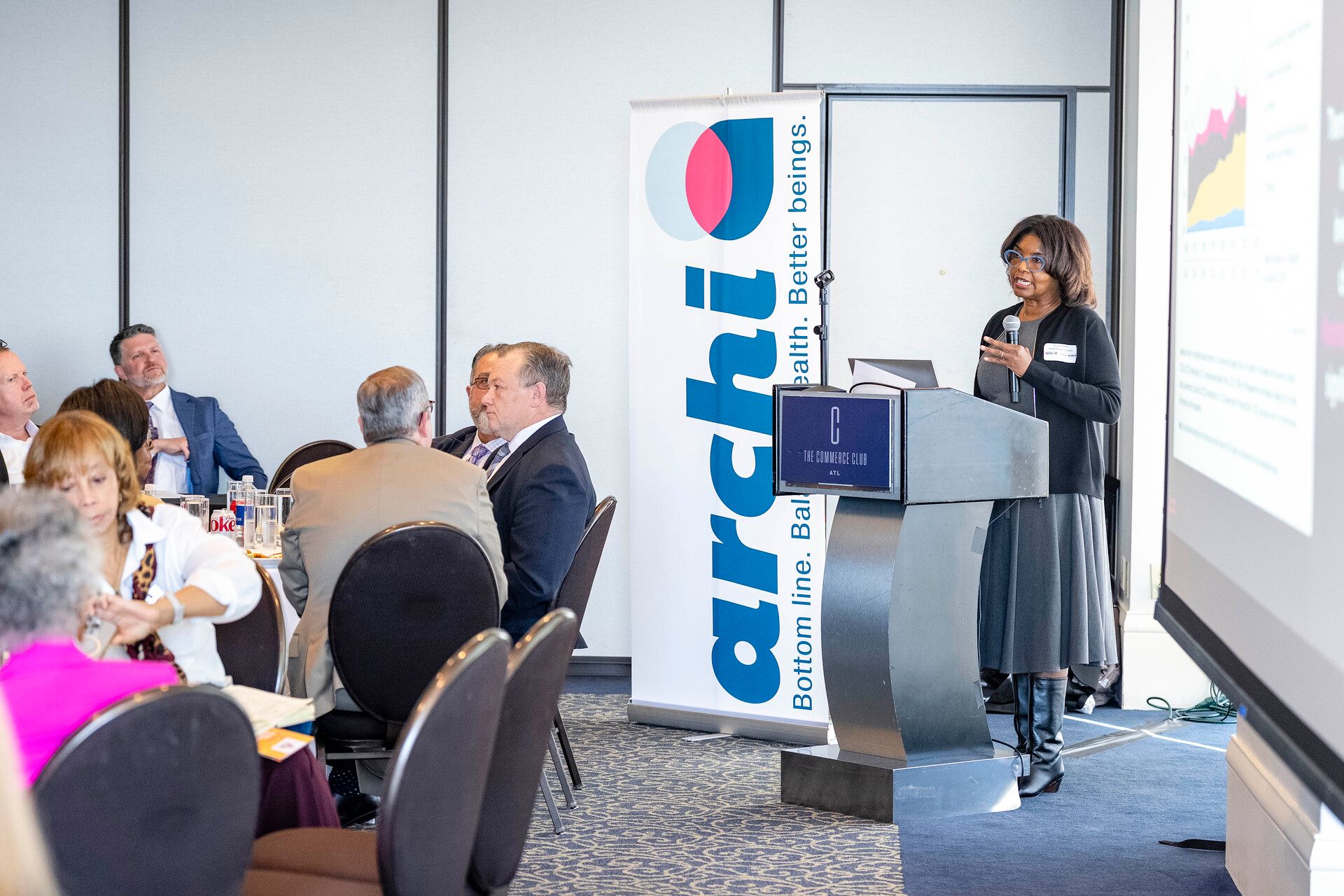- Healthbeat
- Posts
- What do stadiums have to do with public health?
What do stadiums have to do with public health?
Some Atlanta leaders learned about ways to attract commercial capital to fund community health improvements. The municipal bond model, often used to build big sports venues, is one idea.
Hi, Atlanta!
In true Atlanta fashion, sports and stadiums were a major topic of conversation in a luncheon last week filled with more than 100 key players from major health systems, nonprofits, and philanthropies.
Dr. Leslie Walker, chair of the Department of Pediatrics at the University of Washington, pitched what might sound like a wild idea: What would happen if we used revenue bonds, like the kind cities use to fund professional sports stadiums, to fund health and well-being innovations?
Her pitch is part of the Investing in Flourishing initiative, which has brought together people working in finance, health, and philanthropy to try to chart a new course for paying for health improvements that doesn’t solely rely on government or charitable funding but rather the savings that come from investing in health care and social services.
Here’s where stadiums come in: Cities use municipal bonds to pay for new stadiums. Stadium authorities coordinate much of that, from putting up the actual stadium to developing parking and practice field plans, to managing eateries and shops and even naming rights. The coordination helps ensure that the stadium functions smoothly – and that bond funds can be paid back.
Walker proposed a similar system that would use bonds to pay for improvements to community well-being. But instead of taxes on ticket and t-shirt sales, the bonds would be paid back from the downstream savings that hospital systems, governments, the school system, and criminal justice entities like jails garner from the upfront investments.
“We’ve got to get past philanthropy and figure out how to tap commercial capital if we're going to have the money that has enough reach, intensity, and duration for population level impact,” said Tyler Norris, who works alongside Walker as a volunteer co-convenor of Investing in Flourishing.
The idea grew out of a project based at the Federal Reserve Bank of New York to facilitate the development of new business models to create better social outcomes. The group is working in Cincinnati and Columbus, Ohio, to develop a proof of concept with the hopes of spreading it elsewhere.
There’s an Atlanta connection, too. The Georgia Health Policy Center at Georgia State University is helping Investing in Flourishing with fundraising and branding, translating the complex financial idea into language everyone can understand.

Dr. Leslie Walker, senior vice president and chief academic officer at Seattle Children’s Hospital and chair of the Department of Pediatrics at the University of Washington, speaks to Atlanta health care leaders on Friday. (Tooshay Productions for ARCHI)
Upcoming Events
🍂 Enjoy the beautiful fall weather and check out the harvest of great community groups at CompassionCon from 1 to 5 p.m. Sunday at Legacy Park in Decatur.
🎤 Don’t forget about Healthbeat’s live storytelling event on Nov. 3! We’ll be featuring the stories of people working on issues related to community health in Atlanta. We’ve got an amazing lineup in the works to take the stage at Manuel’s Tavern. Thanks to everyone for your timely RSVPs. The seats are full. But don’t worry, we’ll be posting a full roster of stories to Healthbeat, as well as sharing video of the event. So stay tuned. Many thanks to the Georgia Health Initiative for sponsoring!
ICYMI
Here’s a recap of the latest reporting from Healthbeat:
Nursing: From Khartoum to Clarkston: How a Sudanese nurse is filling a gap in health care
Aid cuts: Atlanta global health work imperiled by U.S. aid cuts
Mpox: Will a new type of mpox virus spread beyond California? Many at-risk people aren’t vaccinated
Malaria: New research raises concerns about local malaria infections in U.S.
Don’t miss Healthbeat’s new newsletter on global public health. Sign up here for the weekly Global Health Checkup.
The Grapevine 🍇
I had a great time at the Bonne Fire ATL happy hour last week on the Beltline. I met a wide range of people, from health care consultants to physicians, to folks who work at insurance companies, to former Centers for Disease Control and Prevention employees. One thing I learned from founder Nadine Peever: Big corporations are just as eager to forge community partnerships with local community groups and activities as small nonprofits are. Wherever you work, relationships make the world go round.
What I’m hearing from readers:
I found your coverage of the Health Connect South event a useful synthesis and shared it with my colleagues in London. Keep doing your fantastic work. I’m so grateful for honest, investigative journalism in these times.
What Do You Know?
Test your knowledge of public health topics. Today’s question:
Ethiopia has the highest trachoma burden in the world, and The Carter Center is working there and in other countries to help eliminate the disease. What is trachoma? |
Tell Me More
Is the federal government shutdown affecting your work? What questions do you have about how it will impact Georgia? Send me your news tips, too. You can reach me at [email protected] or reply to this email.
In health,
Rebecca
Looking for your next read? Check out these other great newsletters.
|
|
|
|



Reply